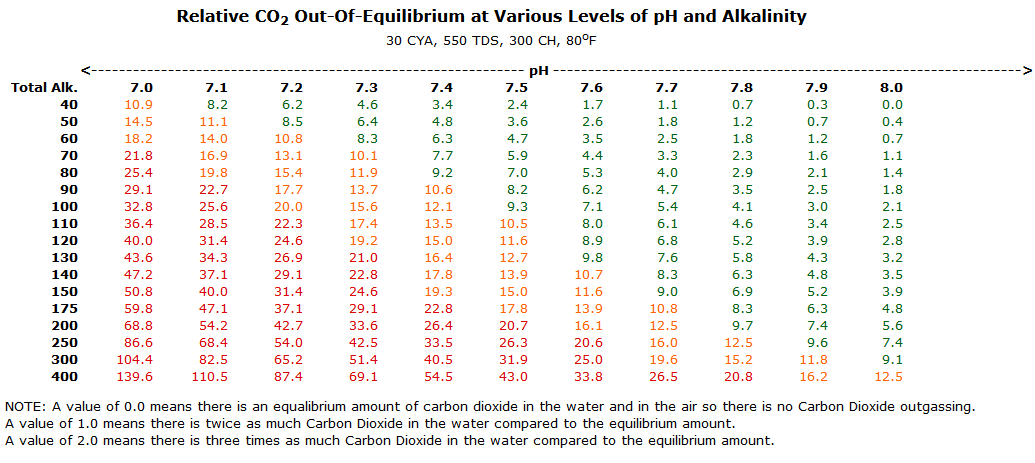| Line 3: | Line 3: | ||
We care about [[pH]] of water and it’s effect on plaster, equipment and people. We only care about [[TA]] because of the effect it has on [[pH]] rising or falling. | We care about [[pH]] of water and it’s effect on plaster, equipment and people. We only care about [[TA]] because of the effect it has on [[pH]] rising or falling. | ||
| − | [[File:Relative CO2 Out-Of-Equilibrium at Various Levels of pH and Alkalinity.png | + | [[File:Relative CO2 Out-Of-Equilibrium at Various Levels of pH and Alkalinity.png|frame|center|Relative CO2 Out-Of-Equilibrium at Various Levels of pH and Alkalinity]]<ref>https://www.troublefreepool.com/~richardfalk/pool/CO2.htm</ref> |
Revision as of 01:06, 6 October 2019
You cannot adjust pH without considering TA. You cannot adjust TA without affecting pH.
We care about pH of water and it’s effect on plaster, equipment and people. We only care about TA because of the effect it has on pH rising or falling.
High TA levels combined with aeration will tend to raise the PH
If one cannot turn off waterfalls or otherwise reduce the aeration, then the only way to avoid the pH rise is to significantly lower the TA level. Some have lowered it down to 50 ppm or even a bit lower. If one does that, then one needs to raise the CH level and pH target to keep the water in balance for plaster pools.[2]
Normally, we recommend TA at 70 ppm for SWCG pools, but that may not be low enough for some pools.
We know that for spas using the Dichlor-then-bleach method, that 50 ppm TA works much better due to the heavy aeration from spa jets and the higher water temps.


